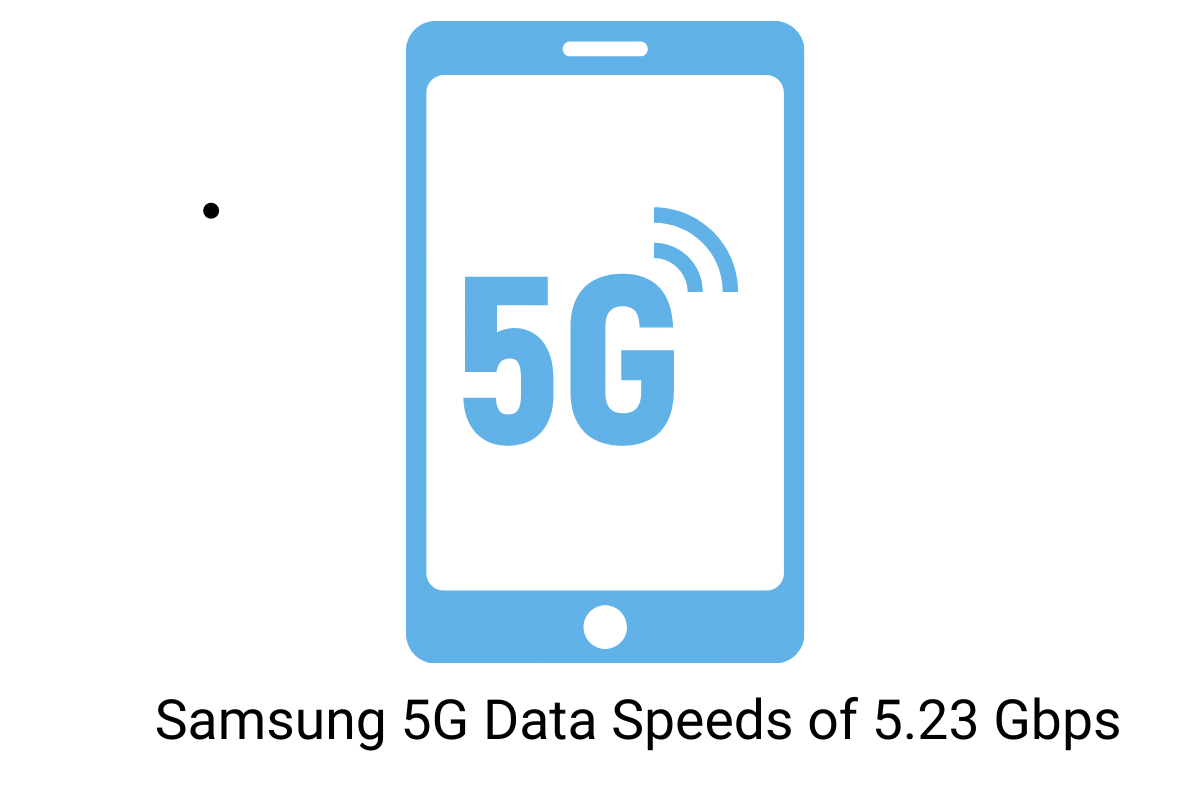South Korean company Samsung Electronics today said that it achieved an incredible 5G speeds of 5.23 Gbps using EN-DC technology. With the help of E-UTRAN New Radio Dual Connectivity (EN-DC) technology, telecom operators can boost 5G speeds and coverage by leveraging a 4G network. These are not the fastest speeds achieved on 5G because the record is held of 8 Gbps speed is held by Nokia and Qualcomm. However, Samsung used a different technology (EN-DC) this time around and the smartphone used for this test was Samsung Galaxy S20+. The demonstration was carried out in Samsung’s lab in South Korea.
Samsung Uses EN-DC Technology to Combine 4G and 5G Networks
Samsung said the test was completed combining 40 MHz of 4G frequency and 800 MHz of 5G frequency in mmWave, which resulted in 5.23 Gbps data speeds on a single device. Furthermore, Samsung said it used commercial end-to-end solutions comprised of devices and network products such as Samsung Galaxy S20+ smartphone, 4G radios, 5G radios (Compact Macro Link) and 4G/5G common Core (Link). Coming to the highlight of this demonstration, Samsung used EN-DC technology that enables operators to combine 4G and 5G for maximising the benefits of both networks. This will result in enhanced speeds, coverage and reliability. The company also said it leveraged carrier aggregation (CA) to combine multiple channels of spectrum for boosting data speeds over a wireless network. Telecom operators across the globe will make use of the 4G spectrum to enhance 5G services and Samsung believes the EN-DC technology will show the power of using a dual 4G and 5G approach. The company highlighted that this achievement is based on years of 5G research. In India, Reliance Jio uses Samsung’s telecom gear and technologies. Today’s 5.23 Gbps speeds on a single 5G device is another milestone for Samsung. In 2018, Samsung achieved 1.7 Gbps 5G speeds on one of the first multi-gigabit 5G New Radio (NR) data connections, followed by 2.65 Gbps data speeds in 2019 and 4.3 Gbps speeds in 2020. And this year, it has surpassed all the previously achieved 5G speeds using a new approach in EN-DC technology.
